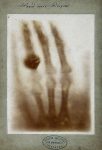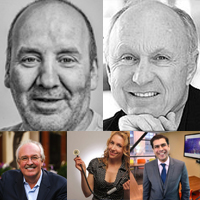By @roguerad
I first clashed with authority when I was eight. Every Saturday bunch of brown kids, children of Indian immigrants to Britain with an identity crisis who longed for the culture they left behind, attended a class in the temple about “our culture” taught by a joyless scholar of Hinduism – a pundit – whose major shtick was punctuality. When I turned up late, even by a minute, he’d make me stand outside, even if freezing. Some kids called him “Hitler,” or “Hitler uncle,” the qualifier “uncle” indicated that because he was as old as our fathers, he deserved respect.
Then, I believed that Hitler meant authority. I preferred calling the pundit “wanker” or “asshole” but the foul language would have gotten me afoul with my parents, my authority figures. “Hitler” amply conveyed disdain for our pot-bellied teacher who exercised his authority whenever he could, without tarnishing our nubile vocabulary.
Eventually, I understood the significance of Hitler, and of World War 2, the Nazis, and the Holocaust. Though related neither morphologically to the perpetrators nor ethnically to the victims of this ghastly period in human history, I developed a reverence, a sensitivity if you will, to such allusions. The Lord of the Old Testament instructed Moses that his name be not used in vain, lest every blocked sink or traffic jam evoked “oh my God.” I resolved never to use Nazi as an epithet frivolously.
I was surprised how common Nazi name-calling was in American political discourse across the political spectrum, which peaked during the Trump Presidency. Some likened migrant detention facilities to “concentration camps.” Many saw in the rise of white nationalism during Trump’s reign parallels with the Third Reich. The former White House strategist, Steven Bannon, was compared to the Nazi propagandist, Goebbels. Bannon is loathsome, detestable, a wanker. Goebbels is a mass murderer – no adjectives are needed to describe him further.
Continue reading…


















